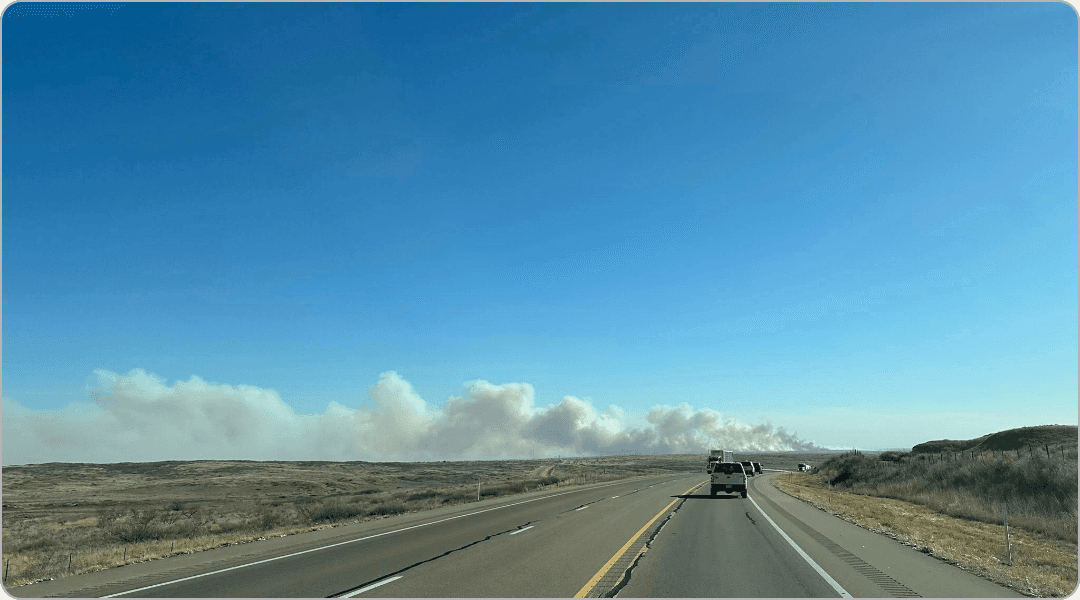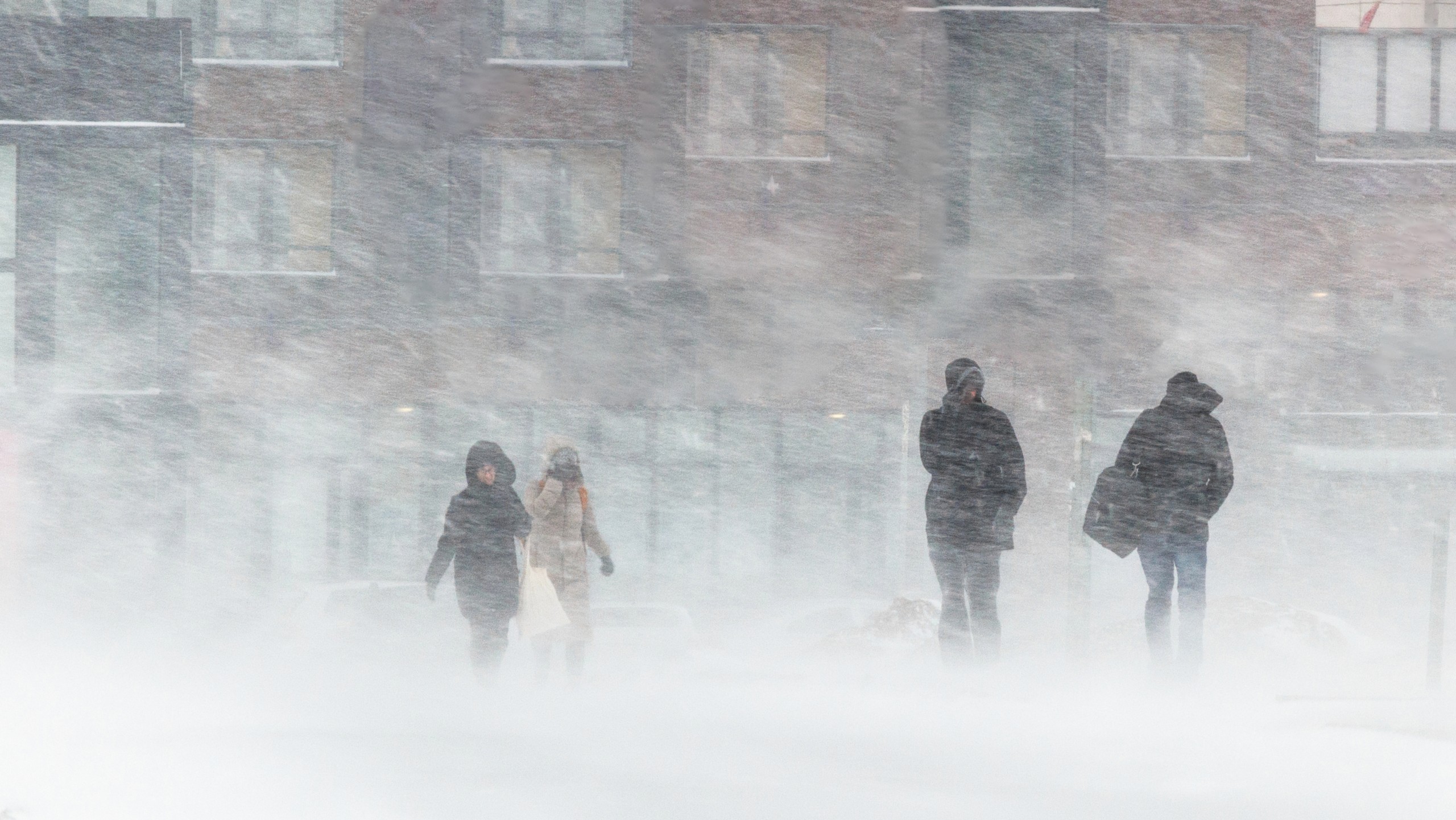This Week in Disasters
A Volatile Week: Fire, Rain, and a Polar Vortex Ahead
Nov 21, 2025
Source: NOAA
Plus, a big week for FEMA
Welcome back to This Week in Disasters! This newsletter combines expert perspectives with a weekly roundup of upcoming threats, recent natural disasters, and available survivor assistance. If you’re an HR, Risk, Employee Assistance, or Emergency Management professional (or you’re just really curious about disasters in the United States!) you’re in the right place.
Major Disasters of the Last Week
Atmospheric river in Southern CaliforniaAn intense storm brought heavy rains (over 4” in Santa Barbara County) and flash-flood threats, causing at least one death when a vehicle was swept off a bridge. Read more... |
Pack Fire in Mono County, CaliforniaThe fire erupted on November 13 and nearly burned more than 3,000 acres, destroying 30 homes and damaging several others. Evacuations were ordered as the fast-moving wildfire swept through communities near Mammoth Lakes. Read more... |

Source: CAL FIRE
Forecasted Risks for Next Week
A sudden stratospheric warming event is forecast to peak in the upper stratosphere over the next few weeks. Its effects are expected to trigger an Arctic air spill into the U.S., leading to a colder and snowier start to December and a disrupted polar vortex.
Excessive rainfall risk for portions of the Ohio Valley, southern California, and western Arizona
Heavy snow for high-elevation and mountainous regions (Cascades, Sierra Nevada, portions of the Rockies) in late November and early December.
Disasters in the Headlines
FEMA chief steps down as Trump administration prepared to oust him
Trump administration makes major changes to a report it commissioned on FEMA reforms, AP sources say
Disaster-battered nations seek $120B in adaptation cash
Politico
A Hidden Health Crisis Following Natural Disasters: Mold Growth in Homes
KFF Health News
Disaster and insurance costs are rising. The middle class is struggling to hang on
PRO PERSPECTIVE
Former FEMA Administrator Pete Gaynor's Take on FEMA's Next Era
Over the last ten months, the future of FEMA has been a contentious topic.
As a former FEMA Administrator, I am extremely proud of my former agency. Our “secret sauce” has always been the more than 20,000 employees who work tirelessly each day to fulfill our mission of helping people before, during, and after disasters. But too often, we are constrained by well-intentioned laws, rules, regulations, policies, and procedures that complicate the very work they are meant to guide.

The FEMA Council, made up of governors, mayors, public safety officials, emergency management professionals, and respected practitioners from across the country, has spent months traveling the nation, holding town halls, and gathering input from a wide range of stakeholders to inform a comprehensive, well-grounded report.
In parallel, Congress has been considering the FEMA 2025 Act draft bill, which proposes updates to FEMA’s authorities and disaster recovery programs. The reformed system must be clearer, simpler, faster, and centered on disaster survivors.
Yet recent media reports, rumors, and speculation have created confusion about what the Council’s report actually contains and how potential changes may affect emergency management programs.
Let me share my personal assessment of the situation, based on conversations with many stakeholders engaged in this debate:
First, a reminder: FEMA is not going away. The overwhelming consensus is that FEMA must continue performing its critical national role. No other organization does what FEMA does or can do.
Second, some level of responsibility will inevitably shift to states and local governments. In fact, early signs of this transition are already visible.
Third, regarding the President’s FEMA Review Council, we will have to wait for the release of the report to fully understand its recommendations. Speculation at this stage benefits no one.
In the meantime, here’s what you can do: strengthen your emergency management programs at every level of leadership. The future of FEMA will look different, shaped by both administrative reforms and legislative proposals like the FEMA 2025 Act. Those who invest now in building strong, resilient programs will be best positioned to protect their communities regardless of what changes come next.
Active Federal Major Disasters
There is usually a 60 day window to apply for help after a disaster is declared. The following disasters are still actively taking applications from survivors for financial support.
The following disasters are actively taking applications from survivors for financial support. To apply, survivors can visit DisasterAssistance.gov or call the FEMA Helpline at 1-800‑621‑3362.
Sisseton-Wahpeton Oyate - Severe Storms & FloodingSTATUS Major Disaster declared September 11, 2025; IA applications accepted in eligible counties until December 5, 2025. AFFECTED COUNTIES Lake Traverse (Sisseton) Indian Reservation |
Alaska - Severe Storms, Flooding, and Remnants of Typhoon HalongSTATUS Major Disaster declared October 22, 2025; IA applications accepted in eligible counties until December 22, 2025. AFFECTED COUNTIES Lower Kuskokwim Regional Educational Attendance Area, Lower Yukon Regional Educational Attendance Area, Northwest Arctic |
Missouri - Severe Storms, Flooding, Straight Line Winds, Tornadoes & FloodingSTATUS Major Disaster declared May 21, 2025; 20 more counties added for IA on October 23, 2025; IA applications in eligible counties until December 22. AFFECTED COUNTIES Bollinger, Butler, Cape Girardeau, Carter, Cooper, Dunklin, Howell, Iron, Mississippi, New Madrid, Oregon, Ozark, Reynolds, Ripley, Scott, Shannon, Stoddard, Vernon, Washington, Wayne |
Leech Lake Band of Ojibwe - Severe Storms, Flooding & Straight Line WindsSTATUS Major Disaster declared October 22, 2025; IA applications accepted in eligible counties until December 30, 2025. AFFECTED COUNTIES Leech Lake Indian Reservation |
Sign up for This Week in Disasters here.
Need more support for your employees or constituents? Bright Harbor can help.




